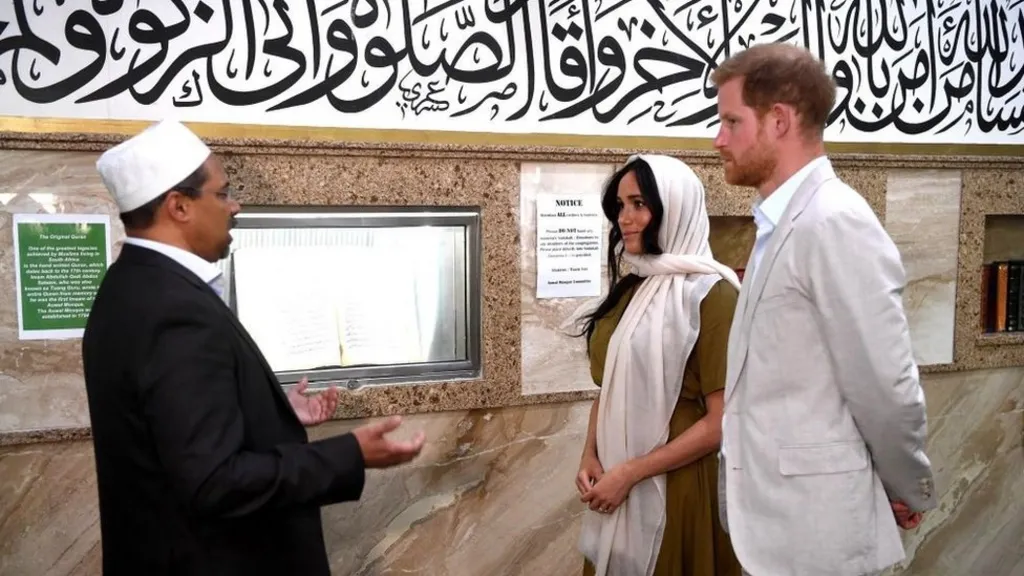Over 200 years ago, an Indonesian imam, banished to the southern tip of Africa by Dutch colonizers, meticulously handwritten a Quran. This precious artifact, crafted by Imam Abdullah ibn Qadi Abdus Salaam, known as Tuan Guru, holds immense pride for Cape Town’s Muslims and is carefully preserved in the Auwal Mosque in the historic Bo Kaap district.
In the mid-1980s, builders discovered this invaluable Quran in a paper bag in the attic of the Auwal Mosque during renovations. Researchers believe Tuan Guru, affectionately called the Master Teacher, wrote the Quran from memory after being exiled to Cape Town from Tidore Island in Indonesia in 1780 due to his resistance against Dutch colonizers.
Cassiem Abdullah, a mosque committee member, recalled, “It was extremely dusty, like no one had been in that attic for more than 100 years. The builders also found a box of religious texts written by Tuan Guru.”
The unbound Quran, consisting of loose, unnumbered pages, was in surprisingly good condition, except for a few frayed edges. The black and red ink used for the clear, calligraphic Arabic script remains vibrant.
The task of organizing and binding the more than 6,000 verses into their correct sequence was undertaken by the late Maulana Taha Karaan, head jurist of the Cape Town-based Muslim Judicial Council, along with local Quranic scholars. This meticulous process took three years to complete.
Since then, the Quran has been displayed in the Auwal Mosque, which Tuan Guru established in 1794 as the first mosque in what is now South Africa. To safeguard this priceless text, it was secured in a fire- and bullet-proof casing at the front of the mosque after three unsuccessful theft attempts.

Tuan Guru’s biographer, Shafiq Morton, believes the scholar began writing the first of five copies while imprisoned on Robben Island, where anti-apartheid icon Nelson Mandela was also held. Tuan Guru continued this noble task after his release, despite being in his 80s and 90s. Remarkably, Arabic was not his first language.
Morton notes, “One reason he wrote the Quran was to lift the spirits of the slaves around him. He realized that a written Quran could educate his people and teach them dignity.” Tuan Guru made his pens from bamboo, and the ink was likely sourced from colonial authorities.
Shaykh Owaisi, a lecturer in South African Islamic history, believes Tuan Guru was driven by the need to preserve Islam among Muslim prisoners and slaves in the Dutch colony. Despite efforts to convert Muslim slaves to Christianity, Tuan Guru was dedicated to teaching the Quran and ensuring its memorization by children.
Tuan Guru also authored a 613-page Arabic textbook, Ma’rifat wal Iman wal Islam (The Knowledge of Faith and Religion), from memory. This basic guide to Islamic beliefs was used for over a century to educate Cape Town’s Muslims and remains in good condition, with a replica housed in Cape Town’s national library.
Of the five handwritten Qurans by Tuan Guru, three are still accounted for. Besides the one in the Auwal Mosque, the other two are with his descendants. Around 100 replicas have been produced, with one recently handed over to the library of the al-Aqsa Mosque in Jerusalem, the third holiest site in Islam.
In 2019, Ganief Hendricks, leader of Al Jama’ah, a Muslim political party in South Africa, used one of the replicas to be sworn in as a member of parliament. The Dutch, by exiling Tuan Guru to southern Africa, inadvertently became the catalyst for spreading Islam to this region, where Muslims now constitute about 5% of Cape Town’s population of 4.6 million.
Morton reflects, “When Tuan Guru arrived, Islam was in a fragile state. The community didn’t have access to texts and were Muslims more from cultural memory. That first Quran he wrote is why the Muslim community survived and developed into the respected community we have today.”
Sunna Files Free Newsletter - اشترك في جريدتنا المجانية
Stay updated with our latest reports, news, designs, and more by subscribing to our newsletter! Delivered straight to your inbox twice a month, our newsletter keeps you in the loop with the most important updates from our website












